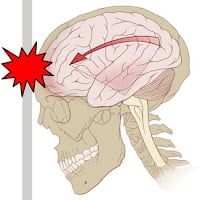NUTRITION: In the fight against Alzheimer’s, a duo of diets rose to the top of the list in a report from the Alzheimer’s Association International Conference.
LONDON — In the fight against Alzheimer’s, three diets rose to the top of the list in a report from the Alzheimer’s Association International Conference.
The diets are:
- The Nordic Prudent Dietary Pattern (NPDP), considered to be a healthy Nordic diet.
- The MIND Diet, a new diet growing in popularity that combines the best brain-healthy components of the Mediterranean Diet and the DASH Diet.
The results from four large population-based studies support a connection between good dietary practices and better cognition in old age.
A group of U.S. scientists found that, among nearly 6,000 older adults in the Health and Retirement Study, those who consistently followed diets long known to contribute to cardiovascular health were also more likely to maintain strong cognitive function in old age. They found that sticking to the specially designed MIND diet and Mediterranean diet was associated with 30 to 35 percent lower risk of cognitive impairment in healthy older adults. In fact, the investigators discovered that those with healthier diets exhibited meaningful preservation of cognitive function.
- The Mediterranean and DASH (Dietary Approaches to Stop Hypertension) diets were originally developed or codified to help improve cardiovascular health.
- A hybrid of these diets, called the Mediterranean-DASH Intervention for Neurodegenerative Delay, or MIND diet, is gaining attention for its potential positive effects on preserving cognitive function and reducing dementia risk in older individuals. A 2015 study found that individuals adhering to this diet exhibited less cognitive decline as they aged (Morris et al. Alzheimer’s Dement. 2015; 11:1015-22).
Other diet-related studies reported at AAIC 2017 included:
- Researchers from the Karolinska Institute in Sweden found that – in a group of more than 2,200 older adults – people sticking to a healthy Nordic diet (including non-root vegetables, certain fruits, fish and poultry) enjoyed better cognitive status than individuals who ate a less healthy diet.
- From more than 7,000 participants in the U.S.-based Women’s Health Initiative Memory Study, researchers found that older women who ate diets traditionally thought of as heart-healthy, in particular the MIND Diet, were less likely to develop dementia.
- A team of researchers at Columbia University presented data suggesting that poor diet may promote premature signs of brain aging through inflammatory mechanisms, which were also associated with smaller brain volume.
“Although the idea that a healthy diet can help protect against cognitive decline as we age is not new, the size and length of these four studies demonstrate how powerful good dietary practices may be in maintaining brain health and function,” said Keith Fargo, PhD, Alzheimer’s Association Director of Scientific Programs and Outreach. “That said, we must understand that what we eat is just one part of the puzzle. Adapting our lifestyles as we get older – for example by exercising regularly, watching what we eat and engaging in lifelong learning – is important in order to maximize the potential to reduce risk of cognitive decline and dementia.”
The Alzheimer’s Association offers 10 Ways to Love Your Brain, including broad dietary guidance, based on the latest research.
Heart Healthy is Brain Healthy
Claire McEvoy, Ph.D. at the University of California, San Francisco, and colleagues examined the association between adherence to the Mediterranean and MIND diets and cognitive performance in a large, nationally representative population of 5,907 older, community-dwelling adults in the Health and Retirement Study. The researchers found that the more healthfully people ate, the better they functioned cognitively.
After controlling for demographic, lifestyle and health variables, participants who were highly adherent to these diets were 30 to 35 percent less likely to exhibit poor performance on a measure of cognitive function. Study participants who were moderately adherent to either diet were 18 percent less likely to exhibit signs of cognitive impairment.
Benefits of a Healthy Nordic Diet
Weili Xu, M.D., Ph.D., at the Karolinska Institute, Stockholm, and colleagues sought to identify dietary habits associated with preserved cognitive function in 2,223 community-dwelling, dementia-free adults in Sweden. The investigators found during six years of follow-up that even moderate adherence to a healthy diet known as the Nordic Prudent Dietary Pattern (NPDP) resulted in better cognitive status than individuals who ate a less healthy diet that included fatty foods, sweets and processed foods. In this population, NPDP was found to be a better predictor of preserved cognitive function than the MIND diet, Mediterranean diet, DASH diet and Baltic Sea Diet.
The NPDP included:
- More frequent consumption of non-root vegetables, apple/pears/peaches, pasta/rice, poultry, fish, vegetable oils, tea and water, and light to moderate wine intake.
- Less frequent intake of root vegetables, refined grains/cereals, butter/margarine, sugar/sweets/pastries, and fruit juice.
Women Who Eat Well Less Likely to Develop Dementia
Research published in 2015 found that the MIND diet was associated with a reduced incidence of Alzheimer’s disease in a sample of 923 older individuals (Morris et al. Alzheimer’s Dement. 2015; 11:1007-1014). Kathleen Hayden, Ph.D., Wake Forest School of Medicine in Winston-Salem, North Carolina, and colleagues sought to replicate these findings in 7,057 women participating in the Women’s Health Initiative Memory Study (WHIMS). Using data from WHIMS, they categorized the participants (mean age 71) into quartiles based on level of adherence to the MIND diet, with the 1st quartile being least adherent and the 4th being the most adherent. There were 615 incident cases of Alzheimer’s during a mean follow-up of 9.7 years.
Compared with women in the first (lowest) quartile of MIND adherence, WHIMS participants in the 2nd, 3rd, and 4th quartiles had 24 percent, 21 percent, and 34 percent reductions in the risk of developing Alzheimer’s. It is noteworthy that the largest share of the risk reduction occurred from the poorest dietary habits to the modestly adherent diet. These results corroborate results from previous research in smaller populations, and suggest that it may not require wholesale diet changes to help preserve the aging brain.
Poor Diet Linked to Inflammation
Building on solid evidence that eating well is brain healthy, researchers are beginning to explore mechanisms through which dietary mechanisms may influence cognitive status and dementia risk. Yian Gu, Ph.D., at Columbia University, New York, and colleagues examined whether an inflammation-related nutrient pattern (INP) was associated with cognitive function and structural MRI findings in the brain.
Using data on 330 community-dwelling, non-demented elderly individuals (mean age 79.7), the investigators found that an INP characterized by high intake of cholesterol, beta-carotene and lutein, and low intake of omega-3 polyunsaturated fatty acids, calcium, folate and vitamins (B1, B2, B5, B6, D, E), was positively associated with levels of inflammatory markers (C-reactive protein and interleukin-6). In addition, closer adherence to this INP was associated with smaller total brain gray matter volume and worse performance in executive function. Additional research in larger populations is needed to confirm the role of inflammation-related dietary components in brain and cognitive health, and help elucidate inflammatory or other mechanisms through which eating habits may alter brain function and structure.
- Claire McEvoy, Ph.D., et al. Neuroprotective Dietary Patterns Are Associated with Better Cognitive Performance in Older US Adults: The Health and Retirement Study. (Funder(s): The Wellcome Trust)
- Weili Xu, MD, Ph.D., et al. Which Dietary Index May Predict Preserved Cognitive Function in Nordic Older Adults? (Funder(s): CoSTREAM project; EU’s Horizon 2020 Research & Innovation Programme)
- Kathleen Hayden, Ph.D., et al. The Mind Diet and Incident Dementia, Findings from the Women’s Health Initiative Memory Study. (Funder(s): National Institutes on Aging)
- Yian Gu, Ph.D., et al. An Inflammatory Nutrient Pattern Is Associated Both Structural and Cognitive Measures of Brain Aging in the Elderly. (Funder(s): U.S. National Institute on Aging)
SOURCE:
-
Alzheimer’s Association International Conference (AAIC)
The Alzheimer’s Association International Conference (AAIC) is the world’s largest gathering of researchers from around the world focused on Alzheimer’s and other dementias. As a part of the Alzheimer’s Association’s research program, AAIC serves as a catalyst for generating new knowledge about dementia and fostering a vital, collegial research community.
AAIC 2017 home page: www.alz.org/aaic/ -
About the Alzheimer’s Association®
The Alzheimer’s Association is the leading voluntary health organization in Alzheimer’s care, support and research. Our mission is to eliminate Alzheimer’s disease through the advancement of research, to provide and enhance care and support for all affected and to reduce the risk of dementia through the promotion of brain health. Our vision is a world without Alzheimer’s. Visit alz.org or call +1 800.272.3900.











